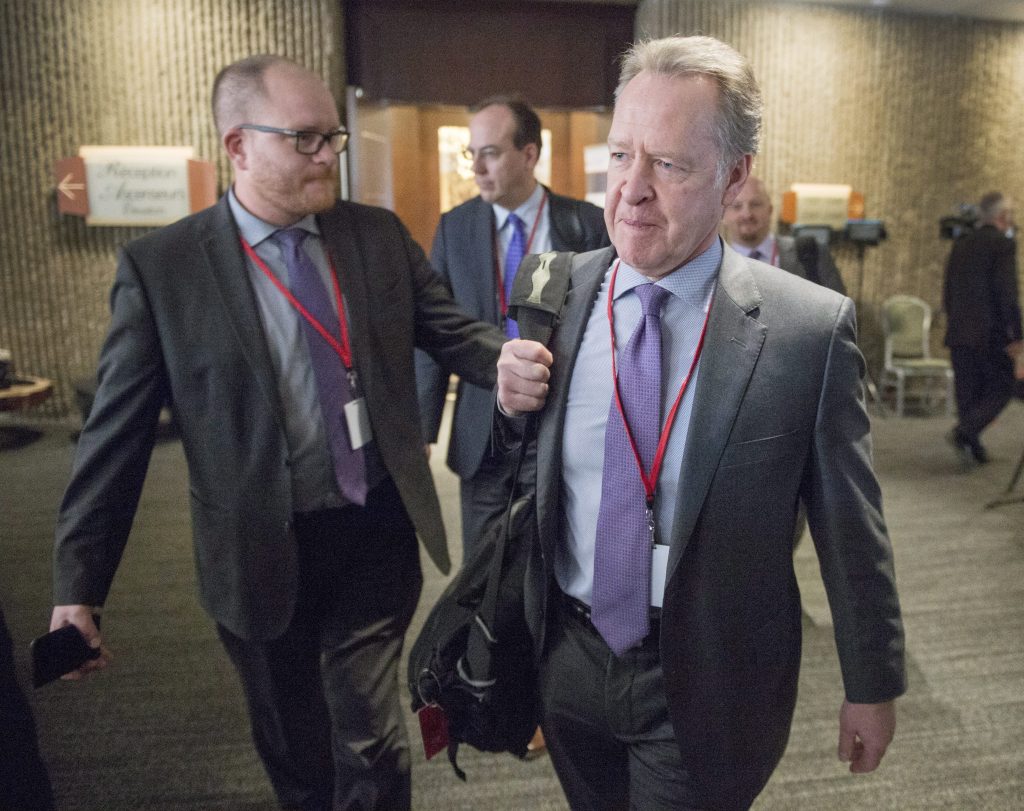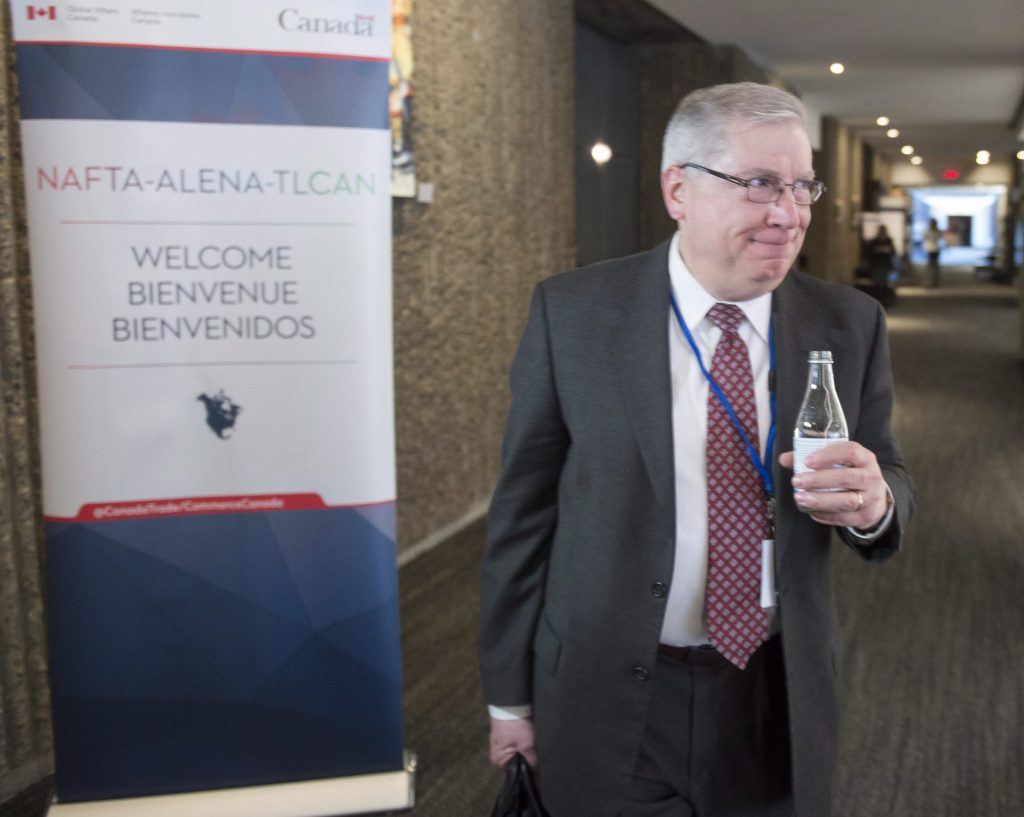A definite note of optimism could be felt reverberating Saturday in the 1960s industrial-style concrete halls of Montreal’s Hotel Bonaventure as negotiators from Canada, U.S. and Mexico hunkered down for a final stretch of talks into the future of the North American Free Trade Agreement.
Teams of negotiators from the three countries have been in Montreal this week for the sixth of seven planned rounds of talks on how to modernize the $1.2 trillion trade pact.
“I think it was a positive week, we’re moving in the right direction but there is a long ways to go,” Canada’s chief negotiator, Steve Verheul, told reporter while walking between meetings Saturday.

Canada’s chief NAFTA negotiator Steve Verheul arrives at the sixth round of the North American Free Trade Agreement negotiations on Friday, January 26, 2018 in Montreal. THE CANADIAN PRESS/Ryan Remiorz
Officials from all three delegations admitted the week-long intensive talks in Montreal have been more constructive than many had feared with negotiators tackling sensitive topics such as auto rules, dispute resolution, and a five-year review clause – all topics that were considered potential poison pills.
A Canadian official speaking on anonymity confirmed reports that negotiators closed a chapter on anti-corruption.
Substantial progress has been made on at least six other chapters of negotiations, officials said.
There are also plans for future rounds of negotiations in Mexico City and Washington over the next two months to build on the work done in Montreal.
And there’s hope there will be less ice between Canada’s Foreign Affairs Minister, Chrystia Freeland, U.S. Trade Representatives Robert Lighthizer and and Mexico’s Ildefonso Guajardo when the three politicians leading the process meet in Montreal on Monday.
There are still substantial differences remaining between the three countries’ positions on everything from dispute resolution, to labour and the sunset clause demanded by the U.S.

John Melle, Assistant U.S. Trade Representative for the Western Hemisphere,and chief negotiator at the sixth round of the North American Free Trade Agreement leaves for the break Friday, January 26, 2018 in Montreal.THE CANADIAN PRESS/Ryan Remiorz
There are barely eight weeks left before the current schedule of talks expires, and U.S. President Donald Trump faces a decision soon about whether to extend the talks, pause during national elections in the U.S. and Mexico or start the process of cancelling NAFTA.
However, there are signs that the Canadian charm offensive and outreach to various stakeholders in the U.S. is paying off, said Maryscott Greenwood, CEO of the Canadian American Business Council.
Ten representatives from the Congressional Ways and Means subcommittee on trade were in Montreal for two days to get an update on the status of the negotiations.
They also met with Andrew Leslie, Canada’s parliamentary secretary of foreign affairs.
Greenwood said NAFTA enjoys bipartisan support from U.S. lawmakers from across the country.
“They all said it’s really important that we renegotiate NAFTA and come up with a new deal,” Greenwood told reporters in Montreal. “Nobody wanted to flip the table, nobody wanted us to pull out.”
U.S. lawmakers see the renegotiation as a perfect opportunity to modernise the 24-year-old accord, Greenwood said.
Canada’s diplomatic push and the charm offensive to engage with key U.S. stakeholders is bearing its fruits, Greenwood said.
There is also realization among many lawmakers who had in the past opposed the free trade deal that scuttling it would cause even bigger problems, she said.
“Coming in I was a little bit worried about this could be the end and now hopefully this is the end of the beginning, not the beginning of the end,” Greenwood said.
With files from The Canadian Press







For reasons beyond our control, and for an undetermined period of time, our comment section is now closed. However, our social networks remain open to your contributions.